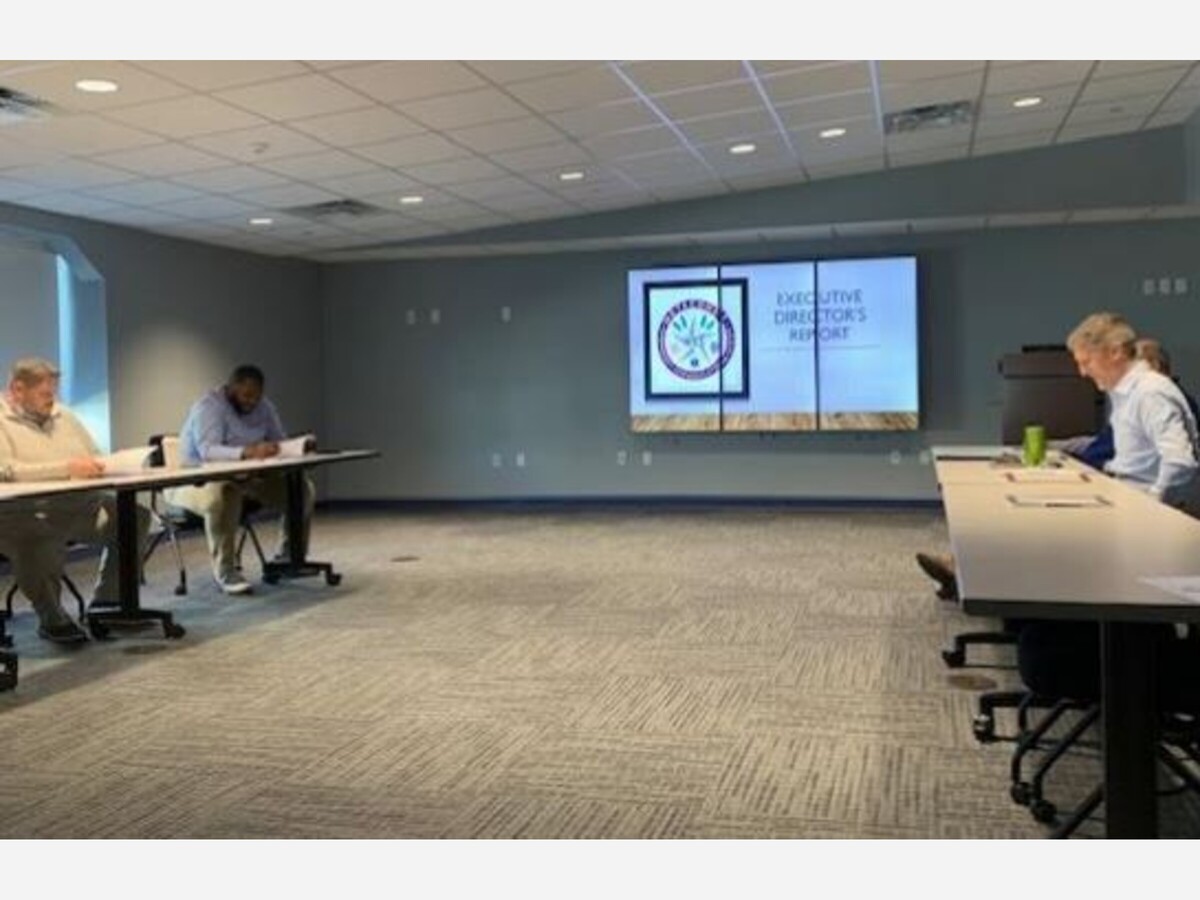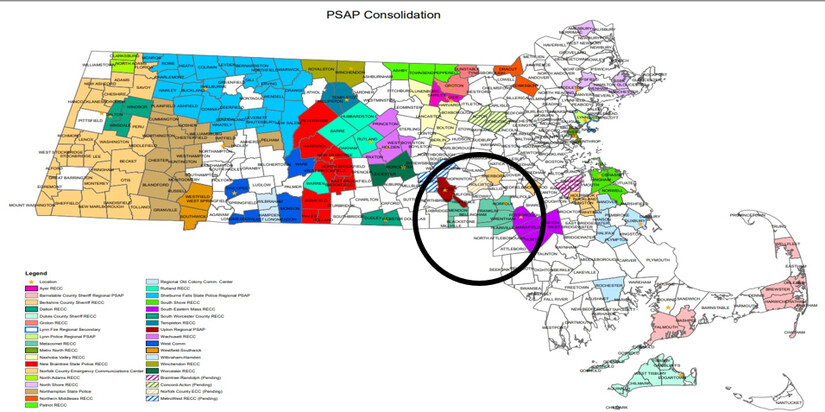Image

Above, Metacomet board, addressed by Jamie Hellen, at right.
The Metacomet Emergency Communications Center (MECC), which runs the
shared emergency dispatch service on which Franklin depends, held its
board of of directors meeting at the Metacomet Center in Norfolk
Wednesday morning and dealt quickly with a number of routine items.
Town Manager Jamie Hellen, who also chairs the group, gaveled the
meeting to order at 8:30 AM.
Minutes from
December, January, February, March, and April were all approved.
The Board them voted
to approve a previously discussed employment agreement with Executive
Director Gary Premo, extending his contract to 2027.
They also voted to
approve a retention bonus program with MACOP Local #475. Premo
explained that a steady leak of people has continued, with most
departing for higher paying law enforcement positions. The measure,
paid out of other personnel savings will provide a yearly bonus for
staying with MECC.
Premo then reported
on the growth and current service levels provided by MECC and plans
for the future. He said MECC currently serves six communities with
more than 95 square miles and a combined population of about 77,000.
MECC applied for, and was awarded funding in the State 911
Department’s FY2023 Development Grant for the purpose of exploring
expanding operations of the center, he said.
Premo explained that
MECC must increase area occupied by the facility to have the ability
to increase the number of communities served. The organization rents
the upper floor of the Norfolk Police Department building and the
only area that the MECC has to expand is the training room.
The new operational
area will also have to be retrofitted with furniture, technology,
Operational Supervisor’s offices, Building support systems and
radio consoles.

Above, three views of what the new center could look like.
Premo noted that
“it’s a chicken and egg situation,” meaning the organization
can’t add new towns to its roster without greater capacity, but
will need to fund the improvements before the additional revenue from
new towns is available. However, state help appears likely to emerge
as both the Baker and Healey administration have supported
regionalization initiatives that can help trim municipal costs.
It also takes time,
he stressed. Getting on the radar with individual towns takes time,
convincing them to joining takes time, and then stringing fiber optic
cable and handling many technical and legal issues takes more time –
years in total, he noted.
But Hellen pointed
out that while the savings are not usually dramatic, they are
significant and proven, so, he expects over time more communities
will want to work with MECC.
Premo shared a map
showing all the other regional emergency services organizations in
the state and their areas of coverage. Most of western and central
Massachusetts is already covered, but the eastern parts of the state
have been slower to adopt. Still, there are many town close to or
contiguous to the current MECC service area that should be likely to
adopt the service in the future.
